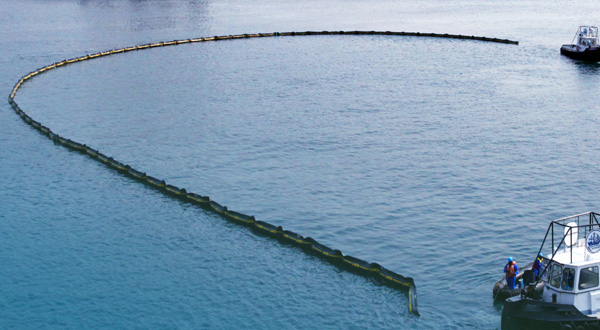An environmental services contractor is now under investigation by American and Japanese authorities, for reportedly dumping illegally at U.S. Navy bases in Japan.
In fact, between 2008 and 2018, Kanto Kosan Co. allegedly discharged partially treated wastewater into the sea at two U.S. Navy bases and then attempted to cover it up.
[smlsubform prepend=”GET THE SAFETY4SEA IN YOUR INBOX!” showname=false emailtxt=”” emailholder=”Enter your email address” showsubmit=true submittxt=”Submit” jsthanks=false thankyou=”Thank you for subscribing to our mailing list”]
For more than a year, these allegations have been investigated by the FBI, the U.S. Navy and the U.S. Justice Department, who are now examining whether Navy personnel ignored early whistleblower complaints about the alleged discharges.
Japanese Chief Cabinet Secretary Yoshihide Suga has stated that the government of Japan is also looking into the matter.
On their part, the company has denied any wrongdoing. Notably, Kanto Kosan specializes in the collection and processing of waste liquids from ships, such as sewage, bilge water, sludge and tank washing water and operates vacuum truck and waste collection barge and tug services at Sasebo, Okinawa and Yokosuka, home to the U.S. 7th Fleet.
According to Wall Street Journal, former employees at the company report that Kanto Kosan used to use a hose to pump the water out and would later submit samples of tap water instead of wastewater for lab testing.
Recently, a federal grand jury in Oakland charged two shipping companies and a First Assistant Engineer with failing to maintain an Oil Record Book for bilge water discharges into the sea about three nautical miles west of the Golden Gate Bridge and with obstruction of justice, the US Department of Justice announced.
Early in the year, vessel operator Interorient Marine Services was convicted and sentenced in Louisiana for maintaining false and incomplete records relating to the discharge of oil from a tanker. Senior ship officers employed by the company aboard the Ridgebury Alexandra Z discharged oily waste into the ocean by flushing the vessel’s pollution prevention equipment sensor with fresh water.
Under the plea agreement the company was ordered to pay USD 2 million and also serve a 4-year term of probation, during which all vessels operated by the company and calling on U.S. ports wererequired to implement a robust Environmental Compliance Plan.
Except the fine, the vessel’s captain was charged in a six-count indictment by a Grand Jury in the Western District of Louisiana for being involved with the illegal action.



























































